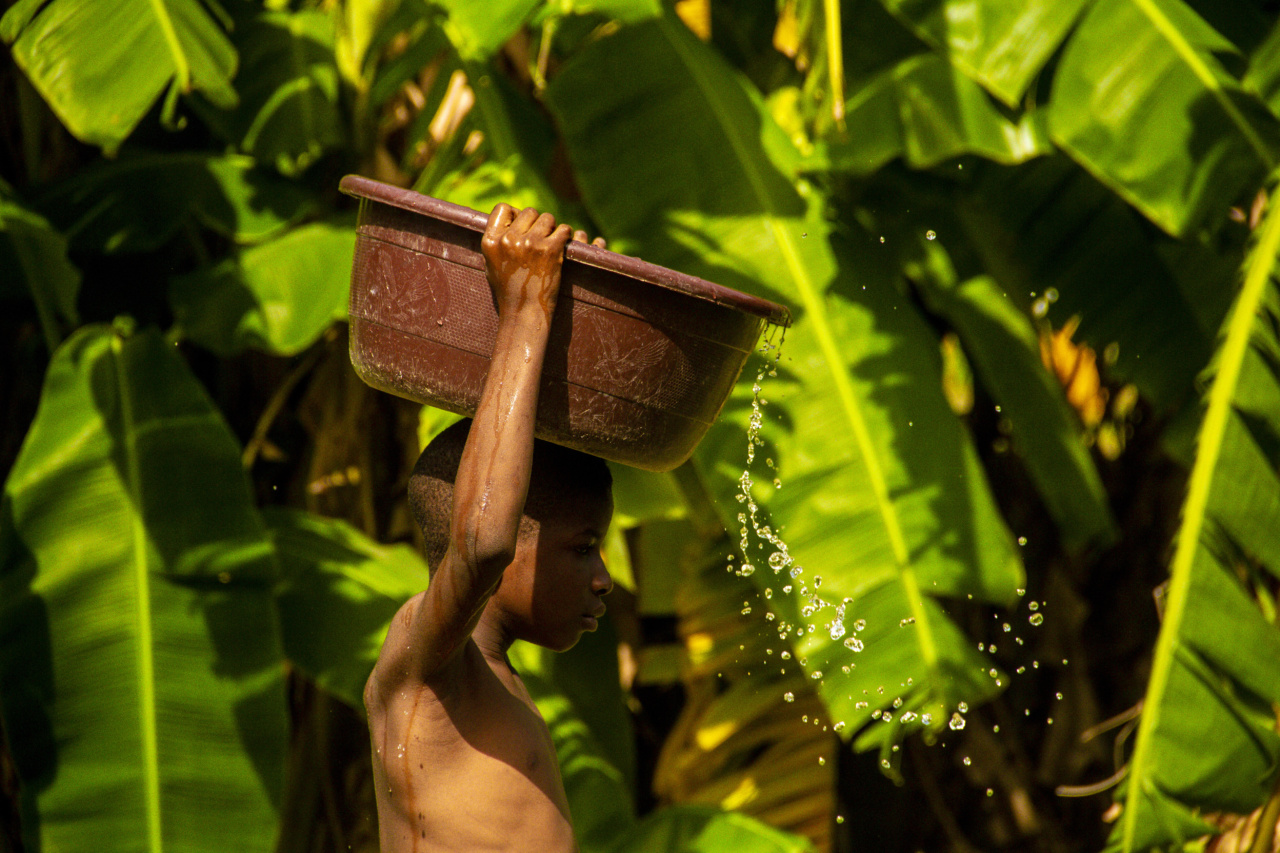Water is essential for life, and ensuring that your little one has access to clean and safe water is of utmost importance.
As a parent, you want to provide the healthiest environment for your child to thrive in, and that includes making sure they are hydrated with the cleanest water possible. In this article, we will explore the significance of clean water for your little ones and discuss the best practices to ensure their safety and well-being.
The Importance of Clean Water for Babies and Children
Babies and young children are especially vulnerable to the harmful effects of contaminated water. Their immune systems are still developing, making them more susceptible to infections and illnesses caused by waterborne pathogens.
Clean water is crucial for their overall health and development. Here are some primary reasons why clean water is vital for your little one:.
Preventing Waterborne Diseases
Waterborne diseases are caused by consuming water that is contaminated with bacteria, viruses, or parasites. These diseases can lead to severe health issues and even death, especially in infants and young children.
Ensuring the cleanest water for your child helps minimize the risk of waterborne diseases such as diarrhea, cholera, typhoid, and dysentery.
Promoting Physical and Cognitive Development
Proper hydration is essential for your child’s physical and cognitive development. Water plays a crucial role in brain function and cellular activities.
Clean water free from harmful substances like lead or heavy metals ensures optimal growth and development of your little one’s body and mind.
Protecting the Immune System
The immune system of babies and young children is still in the early stages of development. Exposure to contaminants in water can weaken their immune system and make them more prone to infections and diseases.
Providing them with clean water strengthens their immune system, enabling them to fight off illness and stay healthy.
Choosing the Cleanest Water for Your Child
When it comes to selecting the cleanest water for your child, there are several options to consider. Each option has its own pros and cons, so it’s essential to evaluate them based on your child’s specific needs and circumstances:.
1. Tap Water
In many countries, tap water undergoes rigorous testing and is considered safe for consumption. However, it’s crucial to be aware of the quality of tap water in your area.
Some regions may have issues with water contamination due to old infrastructure or environmental factors. To ensure the safety of tap water, you can install a certified water filter on your faucet or use a water pitcher with a built-in filter.
2. Bottled Water
Bottled water is a popular choice for many parents due to its convenience and perceived cleanliness.
When selecting bottled water for your child, it’s important to check the label for information about the water source and any purification processes it has undergone. Look for brands that use advanced filtration methods or natural spring water sources.
3. Distilled Water
Distilled water goes through a process of boiling and condensation, which removes impurities and minerals. It is often used for medical purposes and in certain formula preparations.
However, it’s not recommended as the primary source of drinking water for babies and children since it lacks essential minerals necessary for their growth and development.
4. Filtered Water
Using a water filtration system at home can be an effective way to ensure the cleanliness of your child’s drinking water.
There are various types of water filters available on the market, including activated carbon filters, reverse osmosis systems, and UV purifiers. You can choose a filtration method based on your specific water quality concerns and preferences.
5. Nursery Water Products
Nursery water products are specifically designed for infants and young children. They undergo additional purification processes to eliminate potential contaminants.
These products often come in ready-to-feed formulas or with added vitamins and minerals for optimal nutrition. Nursery water can be a convenient and safe option for your little one.
Maintaining Healthy Hydration Practices
Once you have chosen the cleanest water option for your child, it’s important to establish healthy hydration practices. Here are some tips to ensure your little one stays well-hydrated:.
1. Properly Sterilize Bottles and Equipment
If you use bottles or any other feeding equipment, it is crucial to sterilize them regularly to prevent the growth of bacteria and other microorganisms.
Boiling the equipment or using sterilizing solutions recommended by the manufacturer can help maintain cleanliness.
2. Monitor Water Temperature
Be cautious of the water temperature when preparing bottles or any other liquid for your child. Water that is too hot can cause burns, while water that is too cold may be uncomfortable to drink.
Use a bottle thermometer or test the temperature on your skin to ensure it is suitable for your little one.
3. Introduce Sippy Cups and Cups
As your child grows older, transition from bottles to sippy cups and eventually cups. This helps encourage proper drinking habits and hygiene. Choose cups that are easy to clean and made of safe materials such as BPA-free plastic or stainless steel.
4. Offer Water Throughout the Day
Provide your child with small amounts of water throughout the day to ensure continuous hydration. Encourage them to drink during meals and between meals, especially during hot weather or physical activities.
5. Lead by Example
Children often learn by observing their parents and caregivers. Set a good example by drinking water regularly and explaining the importance of staying hydrated. This will help instill healthy habits in your little one.
Conclusion
Ensuring the cleanest water for your little one is essential for their overall well-being and development.
By understanding the importance of clean water, choosing the right water source, and practicing healthy hydration habits, you can provide a safe and nourishing environment for your child. Remember, their health is in your hands, and prioritizing clean water is a crucial step in giving them the best start in life.






























